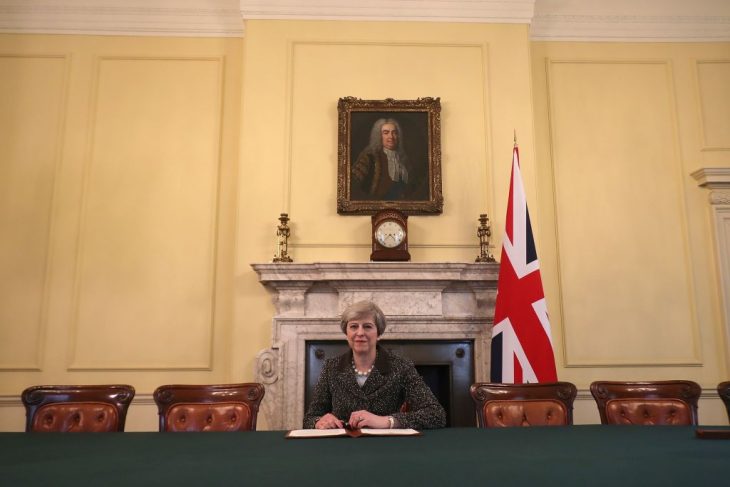Theresa May is trying to play the role of the great conciliator today. She has avoided any hint of triumphalism or saying anything that the European Union would instantly reject. Instead, she has emphasised her desire for a ‘deep and special partnership’ with the European Union and that the UK wants to be the ‘best friend and neighbour’ to the EU. She has not repeated her Lancaster House message that she thinks ‘no deal is better than a bad deal’ or threatened to change the UK economic model if no free trade agreement with the EU can be struck.
The Article 50 letter that May has sent to Tusk also strikes a conciliatory note. But, unsurprisingly, it makes clear that the UK wants to discuss the ‘future partnership’ alongside the withdrawal agreement. Interestingly, it adds that security cooperation ‘would be weakened’ if the UK left the EU without a deal—which is the closest the letter comes to containing a threat. This is another reminder that May, a former Home Secretary, regards Britain’s security contribution to Europe as one of its strongest cards in the negotiations ahead.
May’s letter also make clear that the UK government thinks that ‘both the UK and the EU would benefit from implementation periods to adjust in a smooth and orderly way to new arrangement’. May is also clear that she would like this agreed early on in the process.
The tone taken by the UK government today has been the right one. As the country that is leaving the EU, there is a particular onus on the UK to try and keep these talks civil. This will mean not rising to every provocation; we should be self-confident enough not to feel the need to respond to every disobliging comment about us.
The European Council’s reaction to the May letter hasn’t been hugely warm, but it hasn’t been destructive either. It talks of its desire ‘to have the United Kingdom as a close partner’ in future. I suspect that the more May keeps up this conciliatory tone, the more this feeling will grow.







Comments